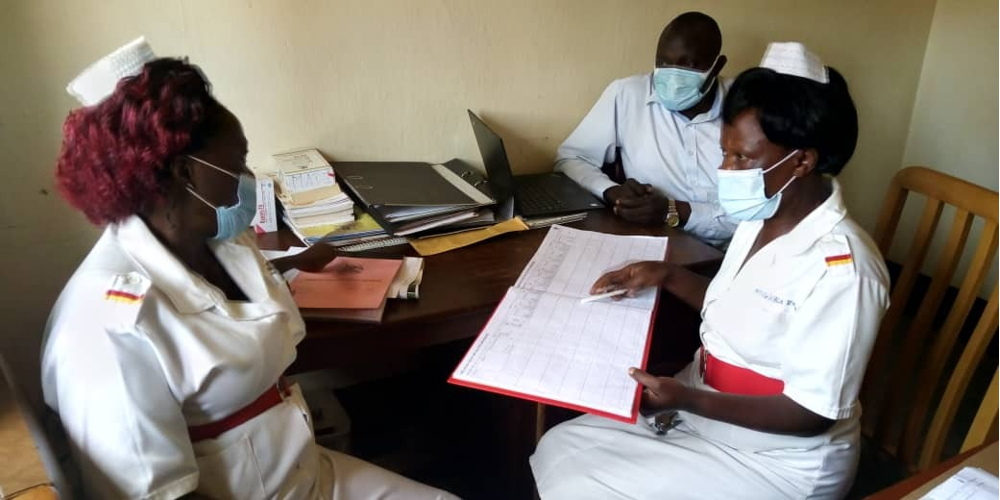Uganda has made extraordinary progress in making palliative care accessible to those in need. Unfortunately, it is estimated that only about 10 percent of the need for palliative care in the country is met, but specific data is lacking. There are national efforts already in place to gather better data on palliative care – PCAU, for example, tracks the number of health care facilities who are accredited to provide palliative care, as well as morphine distribution throughout the country.
To better support palliative care services, however, more data is needed to help leaders understand the current state of palliative care, identify gaps and provide evidence for making decisions to enhance the availability and use of those services.
In 2015, PCAU piloted an mHealth surveillance system for collecting basic palliative care data in partnership with Center for Hospice Care/Hospice Foundation (CHC/HF) and the University of Notre Dame (ND). Hospice Foundation staff member Lacey Ahern, then a full-time faculty member at ND, spearheaded the pilot with PCAU and master’s student Bri Cawley.
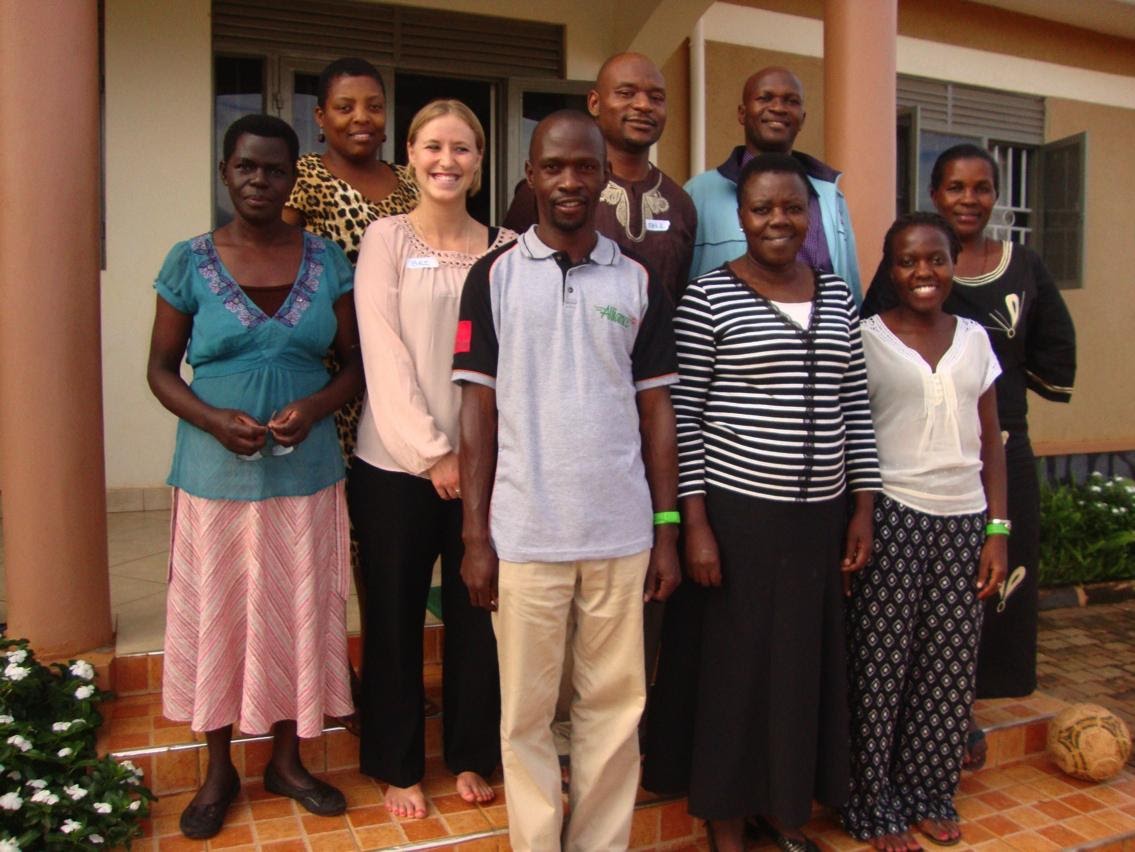
Cawley with PCAU staff and the pioneering participants of the project in 2015.
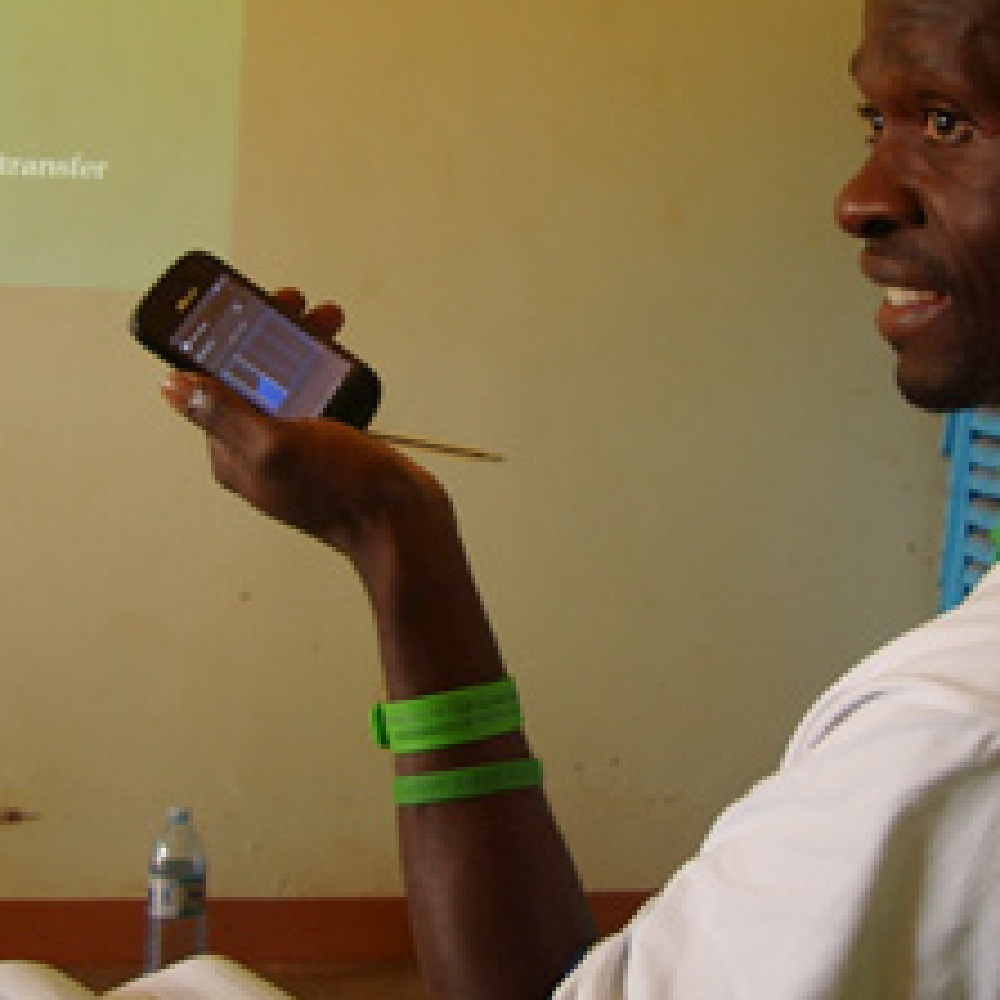
Palliative care provider learning to enter data into the mHealth surveillance platform.
mHealth is the use of mobile technologies such as mobile phones and tablets to advance both data collection and service delivery in healthcare. This is especially relevant in Sub-Saharan Africa where there are an average of 87 mobile/cellular subscriptions per 100 people. Quality data collected quickly via mHealth tools can impact the provision of palliative care as it is a major factor in financial decision-making by governments, insurers and NGOs in program provision. The mHealth surveillance system project collects regular data on palliative care at 20 facilities geographically dispersed throughout the country. Palliative care providers enter basic data on a monthly basis via an app on a mobile phone. PCAU collects, analyzes and reports data back to all stakeholders including government, donors and the participating health facilities.
In 2016, the project really took off. PCAU hired Cynthia Kabagambe as their ICT and data officer to lead the project. With a background in software engineering, and skills in monitoring and evaluation, Kabagambe was the right person to carry the project forward. Ahern continued to engage students and colleagues from ND, including Tom Marentette from the Office of Information Technologies and Matthew Sisk from the Navari Family Center for Digital Scholarship. Building on a 12-year history of collaboration between the ND and Uganda Martyrs University (UMU), UMU professor and head of ICT, Sheba Nyakaisiki, joined the project as a partner to help evaluate the quality of data and project progress. Ahern and Nyakaisiki had worked together since the beginning days of the UMU/ND collaboration in 2009.
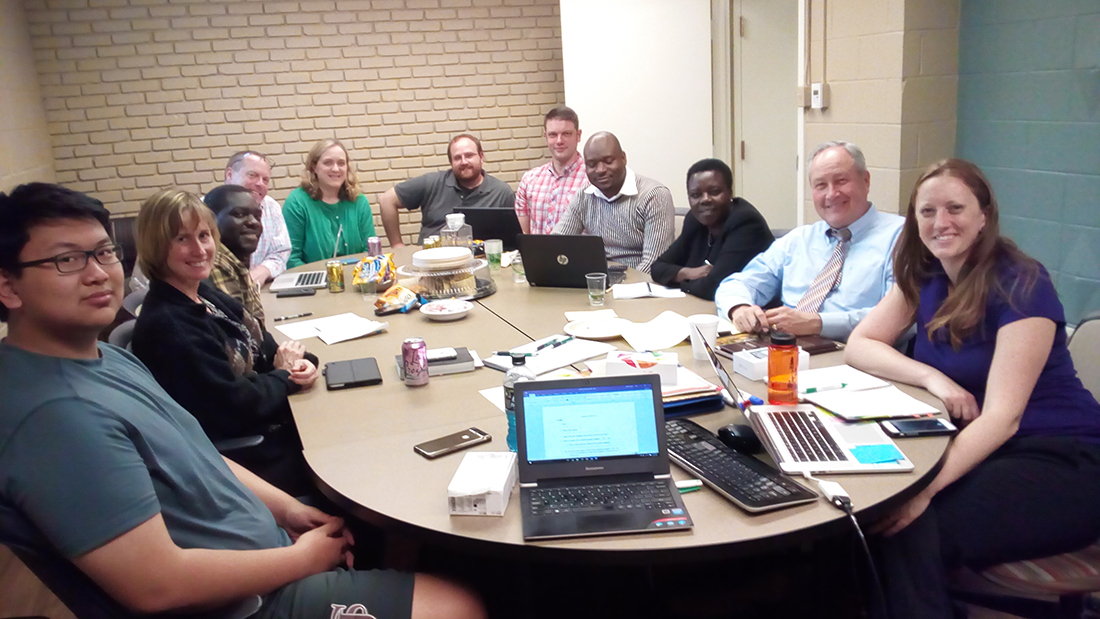
Project meeting with partners from PCAU, CHC/HF and ND in 2016.
“There are so many colleagues from ND and UMU who gave their time and talent to this project at different stages – we never would have gotten it off the ground without their help and expertise. Universities have the ability to leverage technical and research expertise to benefit the programmatic work of organizations who improve health and quality of life for those suffering.” Ahern said.
Kabagambe and her dedicated colleagues at PCAU have been the driving force in the project, tirelessly working with the Ministry of Health (MOH) to develop palliative care data collection in the country. And in 2019, PCAU and the MOH began the integration of palliative care data into the national Health Management Information System (HMIS) and the District Health Information Software 2 (DHIS2). This is significant because HMIS data provides quality information, aides in setting health performance targets, and assists in health planning for the government. It is expected that once palliative care has been fully integrated, information generated will support palliative care planning, intervention design and resource allocation. This is perhaps the most important milestone for the sustainability of consistent and reliable palliative care data for the country – which will lead to more sustained government support for palliative care services.
Currently, there is ongoing dissemination and training of the palliative care HMIS tools by PCAU and the MOH – who is now a key partner with PCAU on this important project. As routine data collection on palliative care is integrated in the national system, the current mHealth surveillance system will shift toward use for palliative care research. This is where UMU and ND – and other universities – will likely focus moving forward, so they can keep supporting PCAU in their mission to ensure palliative care is available to all in need in Uganda.
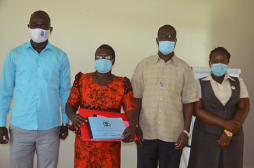
Commissioner Clinical Services Dr. Jackson Amone (second from right) hands over data collection tools to one of the participating health facilities.
